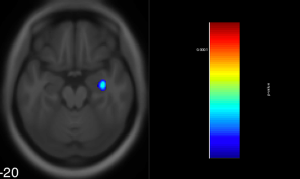From Sumner Redstone’s claims to Stan Lee’s lawsuit, elder abuse is in the news. One in ten Americans over 60 years-old has experienced some form of elder abuse; globally, the number is more than one in seven.
“The term elder abuse is used to describe a range of problem behaviors, including physical assault, emotional abuse, sexual coercion, financial exploitation and caregiver neglect. Although it is gaining attention, mistreatment typically occurs in the shadows, most often committed by family members or other close friends and neighbors,” says Kathleen Wilber, professor of gerontology at the USC Leonard Davis School and the co-director of the USC Center on Elder Mistreatment.
Kathleen Wilber focuses on improving health outcomes and quality of life for vulnerable elders, including those with chronic illness, disability, cognitive impairment, and/or economic insecurity by improving the design and delivery of long-term services and supports.
Contact: wilber@usc.edu or (213) 740-1736
Elder abuse isn’t always intentional
Recent research from the USC Leonard Davis School of Gerontology found that caregivers were the largest group of abusers (37 percent). However, more than 90 percent of caregivers help with functional and emotional support, including personal care needs like driving to doctor’s appointments and running errands.
“Elder abuse perpetrators are a diverse group who would benefit from a variety of interventions to help stop abuse and prevent it from occurring in the first place,” notes USC Leonard Davis School research assistant professor Zach Gassoumis. “In the case of caregivers, this may include education about minimum standards of care, proper financial management and fiduciary practices, or referral to caregiver support services.”
Zach Gassoumis researches securing a basic quality of life for older adults, specifically within the areas of elder abuse, economic security, and the provision of health, social, and protective services.
Contact: gassoumi@usc.edu or (213) 740-5156
Dementia may raise risk of abuse
“There are many forms of abuse, and different risk factors. One of these risk factors is the older adult’s cognitive health. Results from many studies have highlighted the risk posed to those with dementia and cognitive impairments,” says MarÃa Aranda, executive director of USC Roybal Institute “However, there is a need for more nationally representative, longitudinal studies to help us better understand the relationship between cognition and abuse.”
MarÃa P. Aranda is an associate professor at the USC Suzanne Dworak-Peck School of Social Work and the executive director of the USC Edward R. Roybal Institute on Aging. She holds a joint appointment with the USC Leonard Davis School of Gerontology and is a psychotherapist with over 30 years of experience providing mental health services to middle-aged and older adults and their families. Aranda is available for interviews in Spanish.
Contact: aranda@usc.edu or (213) 740-1887
Older adults are more vulnerable because of changes in their brain
 “Financial exploitation of older adults is a devastating form of elder abuse that results in profound consequences to the health, wellbeing, and independence of older adults, and the loss of billions of dollars annually to our national economy. However, little is known about the risk factors of financial exploitation in old age.” says Duke Han, associate professor of family medicine at the Keck School of Medicine of USC.
“Financial exploitation of older adults is a devastating form of elder abuse that results in profound consequences to the health, wellbeing, and independence of older adults, and the loss of billions of dollars annually to our national economy. However, little is known about the risk factors of financial exploitation in old age.” says Duke Han, associate professor of family medicine at the Keck School of Medicine of USC.
Han’s neuroscience research suggests that deterioration of specific brain networks that serve crucial prospective imagery and decision-making functions may lead to greater susceptibility to scams and fraud in vulnerable older adults.
Duke Han is a diplomate of the American Board of Professional Psychology in clinical neuropsychology, Director of Neuropsychology in the Department of Family Medicine, and an Associate Professor of Family Medicine, Neurology, Psychology, and Gerontology at the Keck School of Medicine of USC.
Contact: Duke.Han@med.usc.edu or (626) 457-5858
We have to all work together to protect the elderly
“Since its founding in 2006, the Los Angeles County Elder Abuse Forensic Center has allowed professionals involved in elder abuse cases from very different perspectives to come together,” notes Diana Homeier, Keck School of Medicine of USC. “This enhanced communication and collaboration increases the probability of agencies working together to achieve the desired goal of better protecting and serving our elderly clients.”
Diana Homeier is an associate Professor of Clinical Family Medicine and Clinical Internal Medicine at the Keck School of Medicine of USC, as well as the medical director of the Los Angeles County Elder Abuse Forensic Center; the center is at the forefront of advancing a dynamic response to elder abuse that brings together practitioners from multiple fields, including medicine, law enforcement, legal and social services.
Contact: dianasch@med.usc.edu or (323) 226-3638

 With World Elder Abuse Awareness Day on June 15, University of Southern California experts provide insights about this important issue that is affecting parents, grandparents and families around the country.
With World Elder Abuse Awareness Day on June 15, University of Southern California experts provide insights about this important issue that is affecting parents, grandparents and families around the country.